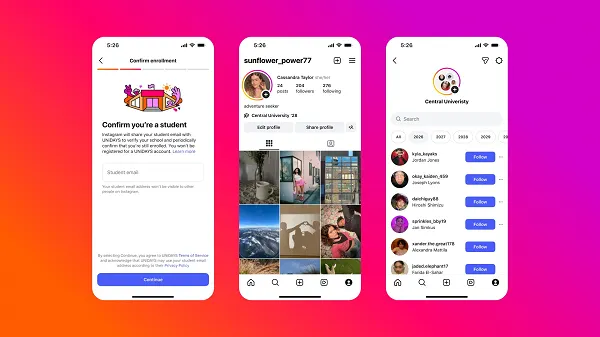Avoid These 6 Common Google News Optimization Mistakes via @sejournal, @dansmull
Here are 6 pitfalls you need to avoid to successfully optimize your site for Google News, the most popular news aggregator. The post Avoid These 6 Common Google News Optimization Mistakes appeared first on Search Engine Journal.

Google News has been around for two decades.
And now more than ever, the internet is many people’s primary news source.
Gone are the days of buying a newspaper in your local shop to get the day’s news. Now, we have multiple news sources at our fingertips.
With multiple perspectives on current affairs.
There hasn’t been a better time for publishers to feature on a news aggregator than today.
Although there are other online news aggregators, such as flipboard.com, upday.com, and even Apple News, Google News is still the leader, according to Parse.ly’s top 10 external publisher referrers.
Many publishers recognize this and are optimizing their news content for Google News.
And, since any site is eligible to appear in Google News, yours may even be indexed and ranking in Google News.
But before you get too carried away about the traffic honeypot potential of Google News, there are several pitfalls to avoid if you truly want to optimize your site for the aggregator.
We’ll explore these mistakes and provide tips on how to get the most out of Google News.
But first, let’s get the basics out of the way.
Google News Optimization Basics
What Is Google News?
Google News is a news aggregator developed by Google.
It was launched in 2002 to help users discover the day’s news from multiple news outlets in their region and beyond.
The aggregator compiles news from various sources on the internet and issues them in both mobile and desktop searches.
Why Is Google News Important For Publishers?
Much of the incoming traffic of digital publishers comes from external sources.
These include search platforms, links from other sites, social media, social shares, etc.
And since Google News is one of the biggest news aggregators, it’s a huge potential source of traffic for many publishers.
Today, Google News accounts for about 4% of publishers’ traffic sources.
Think of it as this massive referrer with incredible reach.
It helps publishers reach new audiences and attract more readers to their news sites.
Thus, sources trying to get as much traffic as possible want to be listed as snippets in Google News.
How Does Google News Work?
Google News collects articles from more than 20,000 publishers worldwide.
On the user’s side, the goal is to provide as much diverse, relevant news content as possible.
Google’s algorithm determines what shows up in whose feed.
And then personalizes it based on the user’s Google News settings and past Google activity.
It’s only in a few specialized cases where Google News teams choose the stories.
As for the publishers, it’s all about the traffic.
The aggregator has various features that let users learn about and engage with a news site.
For example, a publisher can submit a URL or feed through Google’s publisher center.
However, doing that doesn’t guarantee the news site surfacing or ranking in Google News.
The aggregator will also feature publishers it finds through Google’s standard web crawl.
This is why optimizing news platforms for Google News is crucial for many people.
Do Not Make These Google News Optimization Mistakes
1. Thinking You Need AMP For Google News
Accelerate Mobile Pages, better known as AMP, is an open-source project launched by Google in 2015.
It was Google’s brainchild to boost the slow performance of publishers on mobile devices.
At the time, this initially sounded enticing for publishers since mobile traffic was well on its rise, and traditional news publishers were struggling with the re-development requirements of the mobile web.
But Google didn’t exactly take the diplomatic path with the framework.
Between 2015 and 2021, publishers had to adopt AMP to appear in Google’s Top Stories on mobile.
Those who didn’t comply simply lost out.
Those who did got the traffic.
However, they also had to deal with the restrictions of adopting valid AMP.
Fortunately, a July 2021 update removed the AMP requirement for mobile Top Stories.
Now, as proven, you don’t need AMP to get featured in Google News.
And with Google News sending users directly to publishers’ websites, it’s time to ditch the framework and focus the time and resources on other aspects of your SEO.
2. Thinking That Google News Is Just For News Publishers
Before December 2019, a publisher needed to tweak their website to match specific requirements and fill the relevant online forms before letting Google review it.
Then, if all went well and Google believed them to be an actual publisher, their application would be approved, and the site would appear in Google News and Top Stories.
When the new Publisher Center rolled in, things changed.
Google removed the manual approval forms and introduced a new Google News inclusion process.
Now, Google decides automatically which websites show up in Google News.
The “official” word is that Google considers sites with high-quality content that comply with Google News content policies.
This inclusion process means a website doesn’t necessarily need to be a news publisher to get into Google News.
As long as they tick all the right boxes, they can appear in Google News and Top Stories.
But getting into Google News is a lot harder than the explanation in the official guidelines.
3. Thinking Google News Is The Same As Top Stories
If you look up a current topic on Google Search, the top news results will be listed prominently as part of the “Top Stories” box in the organic search results.
Many people think that this box is the same as Google News.
It isn’t.
Rather, Top Stories is a feature of Google Search, the engine, not Google News, the aggregator.
4. Not Following Google News Content Policies
Google News has policies that it expects its publishing partners to adhere to. For instance, the content shouldn’t violate Google’s guidelines of dangerous, deceptive, hateful, harassing, medical, terrorist, and sexually explicit content.
There are also policies on manipulated media, violence and gore, and vulgar language and profanity.
There are also feature-specific policies on ads and sponsored content and transparency.
For example, advertising and paid promotional material on publishers’ pagers shouldn’t exceed their content.
And in the spirit of transparency, news sites should provide precise dates and bylines, contact information, and information about the authors, publication, and publisher.
These are just a fraction of what Google News expects from you.
As you optimize your page, ensure that you’ve read and understood the aggregator’s policies. If you fail to do so, the algorithm will kick you out.
5. Ignoring Google’s Publisher Center
Google did away with the manual inclusion process in favor of an automatic one.
In the same update, they launched the new Publisher Center.
And although you can appear on Google News without being a Publisher Center-approved site, you shouldn’t ignore it.
The Publisher Center offers many features and benefits crucial to your search engine rankings.
One such feature is the ability to manage multiple news publications under one organization.
Google Publisher Center is also the key to making your content more visible on Google News.
6. Making Live Changes On Google News Publisher Center
Significant changes to your publication, like ad implementations, CSS overrides, manager-only sections, and unpublished publications can interfere with the user experience.
Therefore, you don’t want to be making such changes live without first testing them.
To avoid this, use Google’s Designer Mode to test changes to your publication.
Optimization Tips To Get The Most Out of Google News
Submit Your Site To Google News Using Google’s Publisher Center
Google can automatically add publishers who meet their content criteria to Google News.
But just because you’ve done everything right doesn’t mean you will be selected.
This is why manually submitting to Google News still has some utility; it increases your chances of appearing in Google News.
To set up your organization:
Log into your Google account and navigate to the Publisher Center’s homepage. In the left-hand navigation menu, click on + Add publication.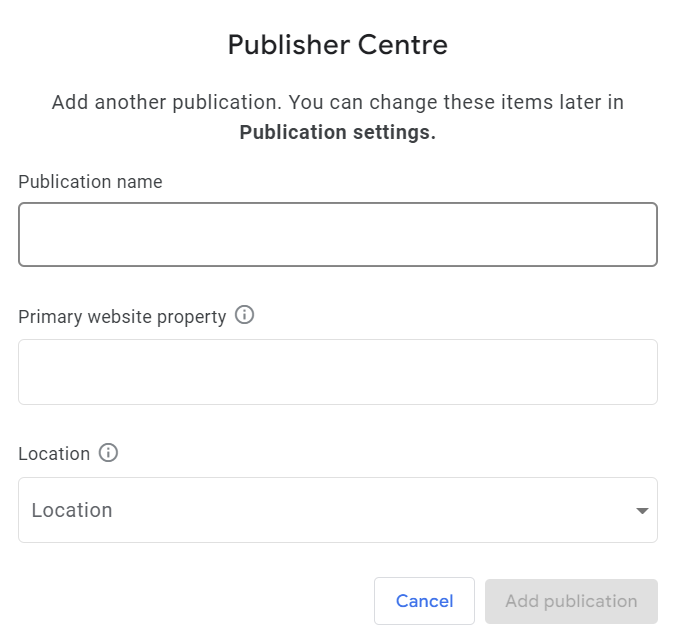 Image from publishercenter.google.com, May 2022
Image from publishercenter.google.com, May 2022
You’ll need to provide some basic information on your publication, including the name, website property, and location.
A new main screen will appear once you’ve created your publication.
To verify your content and URL, click on Publication Settings on the main interface and fill in all the available options under the General tab.
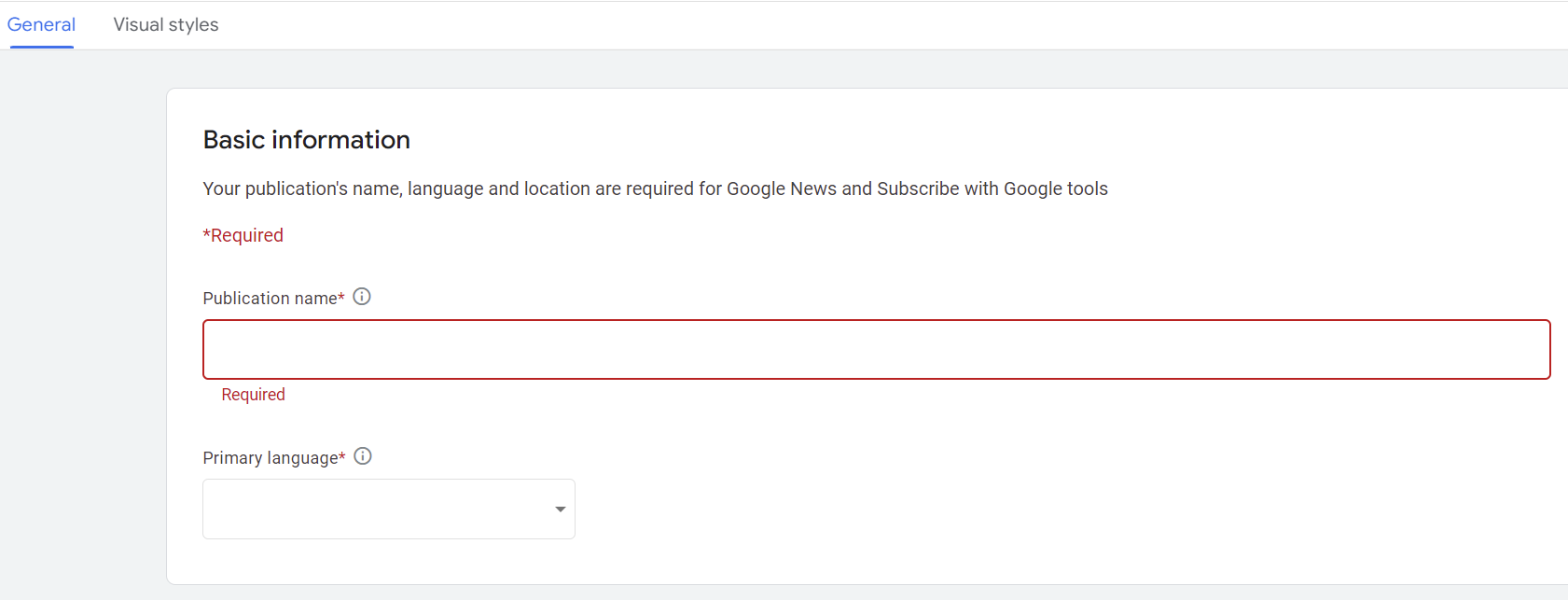 Image from publishercenter.google.com, May 2022
Image from publishercenter.google.com, May 2022
Then, click on the Visual Styles tab to add your publication’s logos. Save your information.
Return to the main interface and click on the Google News box.
Here, you can design, brand, and customize your publication for Google News.
Next, click on edit and fill in relevant information under the General and Content settings tabs.
Review and publish the details.
Back on the main interface, you can also add content labels to help Google understand your content better. This is in the Content labels box.
Don’t overlook this part.
You’ll also need to verify that the site is yours via Google Search Console.
If you’re using the same Google account on both, just add your website’s URL and click verify in Search Console.
Handle Sponsored Content Correctly With Google News
Yes, sponsored content is allowed on Google News.
But there are limitations.
For instance, Google says that having sponsored content is acceptable as long as:
It doesn’t exceed your primary content. It is not misleading as editorial content.But unlike in 2013, when it was recommended to block sponsored content from Google News, there is no reference that you still need to do that in their policies.
You do, however, need to nofollow external links on sponsored content.
But you can still let Google News index commercial content.
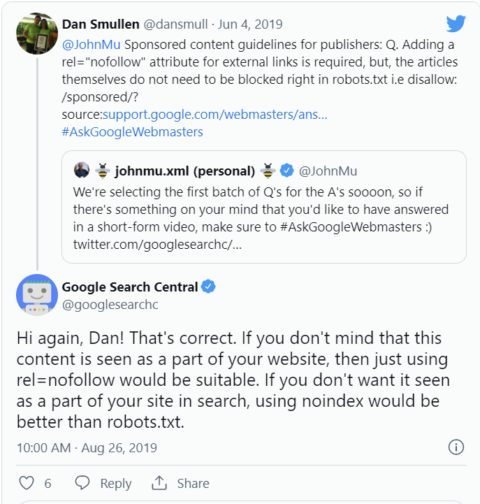 Screenshot from Twitter, May 2022
Screenshot from Twitter, May 2022
This was confirmed by Google in this tweet, as well as on Twitter with Danny Sullivan, Google’s public Search Liaison.
Follow On Page SEO Best Practices
Once you’re on Google News, there are several best practices you need to succeed.
Headlines And Dates
Google News uses crawlers to scan pages and determine the correct headlines for your articles.
So, they need the right signals to display accurate titles from your content.
Check out Google’s best practices and their guide on providing the correct published date.
Tip: Don’t forget to constantly remind your writer/colleague/journalist friends to include the keyword in the headline!
Anchor Text
Match the anchor text pointing to your article in the section pages to your article/page’s title.
Match your article page’s title (in the HTML <title> tag) to your article’s title.
Publishing Date
As for the times and dates, Google News wants you to be accurate and precise so they can get it right.
You should show one clear date and time stamp. The best place for this is usually between the headline and the article text.
Use structured data, i.e., datePublished and dateModified schema with the correct time zone.
Tip: Google will tell you not to artificially freshen stories. Artificial freshening refers to giving an article a fresh date and time without adding significant information.
However, savvy News SEO experts such as Christine Liang from the New York Times will teach you the benefits of keeping the timestamp fresh.
Take advantage of the Google News “freshness” ranking factor.
Duplicate Content
Google recommends that publishers block scraped and rewritten content from Google News.
And also recommends using the rel=”canonical” tag for syndicated content.
However, as you will learn when working in News SEO, syndicated content from news wires rank just fine, and most publishers allow their syndicated content to be indexed.
The issue only really arises when you have internal syndication across sister sites. For that, the rel=”canonical” tag can be very effective.
Shelby Blackley of Mashable explains this in her guide on how to handle wire stories for SEO.
Transparency
Google News also rewards transparency.
Being transparent about your publication, authors, and content, following E-A-T best practices, and encouraging journalists to have good author bios can go a long way.
You should also make sure that the website is secure with HTTPS.
Google discourages publishers from participating in link schemes. Instead, read Google’s guide on how to qualify outbound links.
But for the most part, when working with a news publisher, it’s not the editorial team you need to worry about. Make sure the commercial team is adhering to these guidelines.
Track “Google News” Traffic
It’s also crucial to track your performance on Google News.
Fortunately, that is relatively easy, thanks to the dedicated performance report within Search Console for Google News publishers.
The performance report will show your total impressions and total clicks.
It will also show how each article performs on Google News and how user behavior varies by country.
More resources:
5 Critical SEO Considerations When Optimizing News Websites News SEO: Popular Topics, Hot Takes & Expert Tips 10 News SEO Tips from The New York Times’ Christine LiangFeatured Image: Twin Design/Shutterstock

 Tekef
Tekef 







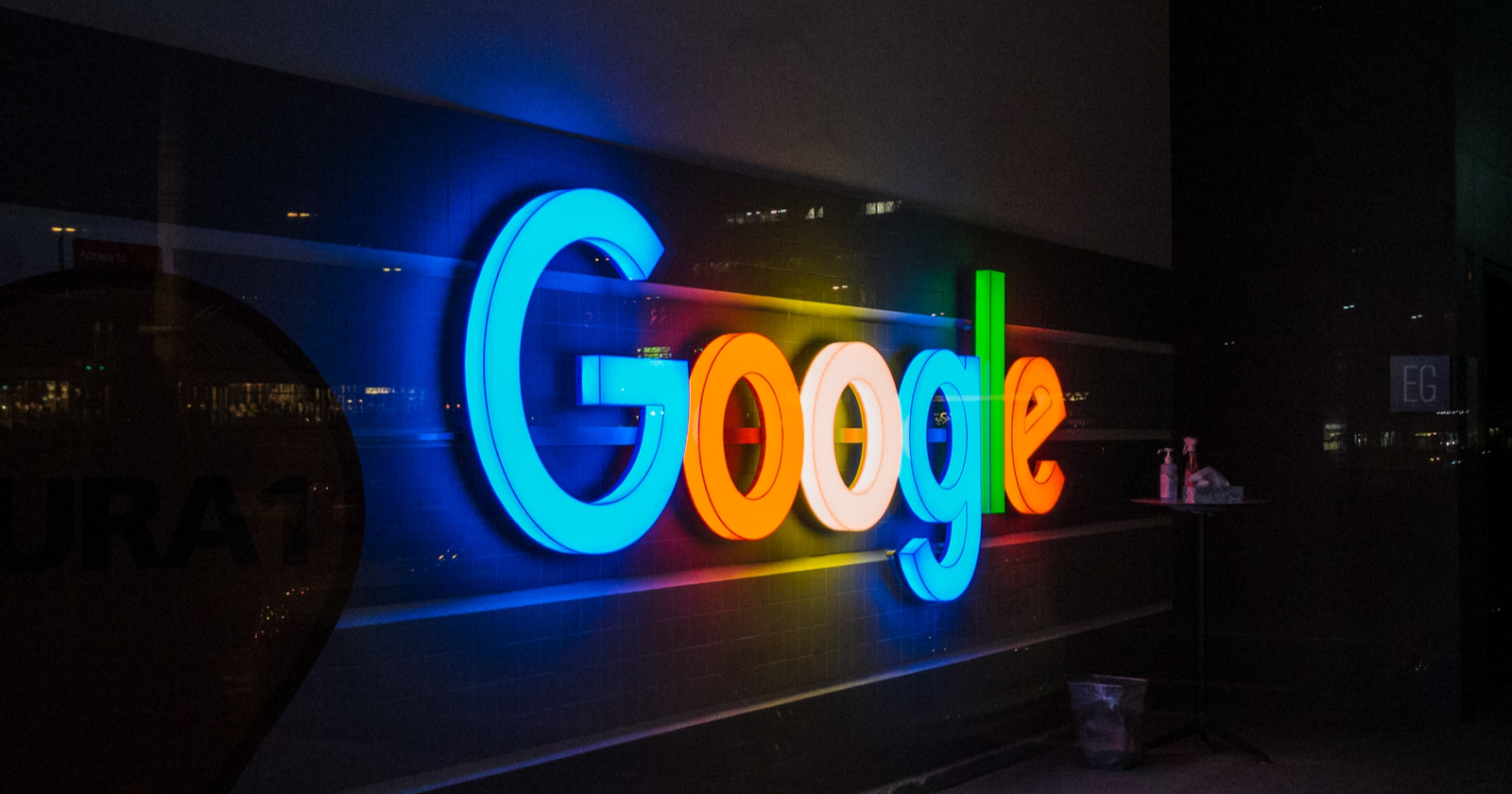



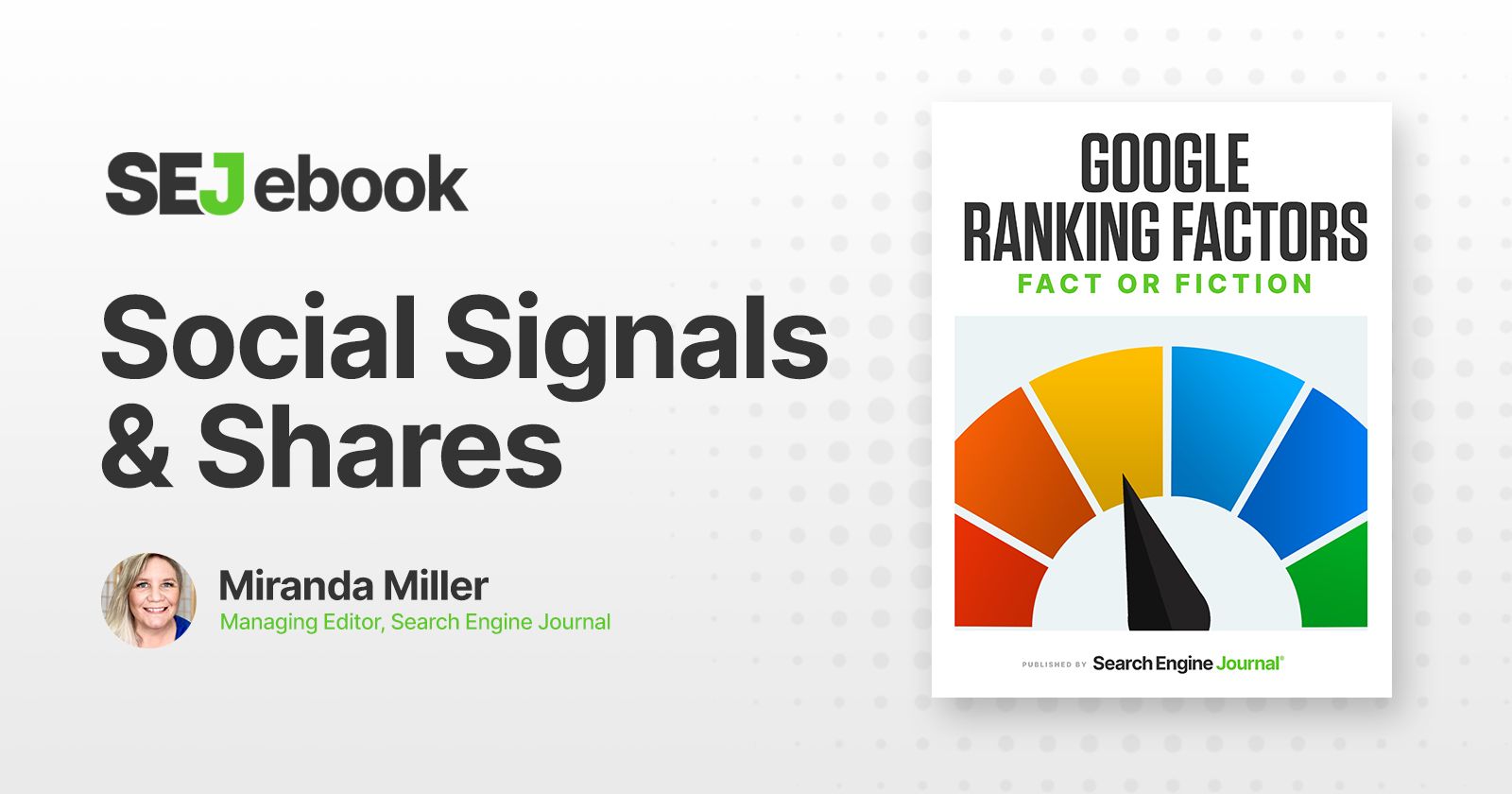
![A Complex Art: Marketing to the Different Funnel Stages [Podcast]](https://cdn.searchenginejournal.com/wp-content/uploads/2021/03/funnel-sej-603d692871529.png)














